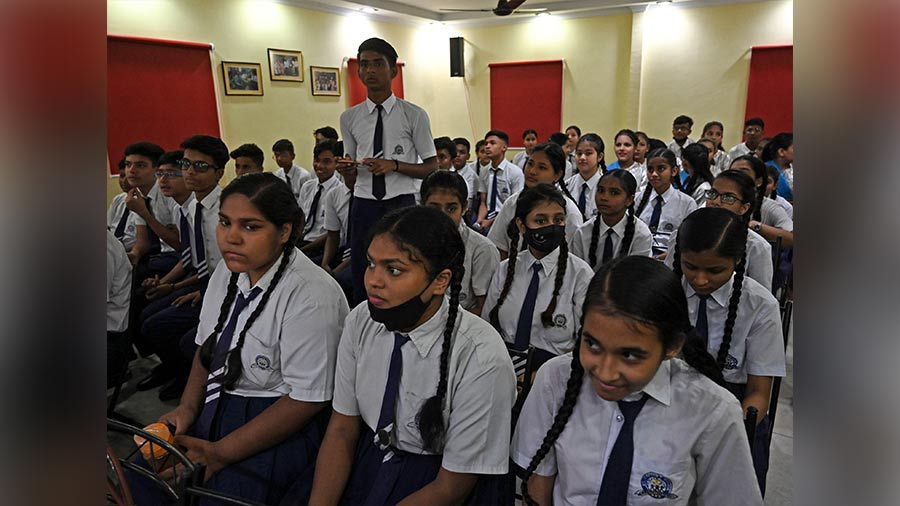Pedagogical practices cannot afford to stagnate. They must seek to reinvent themselves in accordance with the demands of the time. Only then can learners equip themselves to survive a competitive environment. The reframing of the National Curriculum Framework was thus necessary. But it seems to have produced a mixed bag of changes. The attempts to be inclusive by the framers of the NCF deserve to be lauded — children of all genders have been encouraged to sit and play together; all children are to participate equally in ‘computational’ subjects like mathematics; there is also a proposal that schools fashion gender-neutral uniforms. These admirable inputs seek to do away with symbolic and stubborn representations of hierarchy in education.
Yet, this spirit of freewheeling accommodation stumbles in the face of the stern emphasis on the prioritisation of a “Bharatiya” curriculum for the NCF. Indic texts would be pushed through. The rush towards ‘Indicanisation’ is also evident in the story-based approach to teaching that has been recommended by the NCF in the foundational stage of a child’s development, with texts like the Panchatantra, Hitopadesha and Jataka Tales being prioritised. There is nothing wrong with learning about the country’s past and its traditions. But it must be asked whether this pedagogical shift would permit the nurturing of the spirit of enquiry and objectivity: for instance, would there be a line to separate myth from fact? Would facts, in turn, be curated selectively? Already, the adoption of a nationalist — saffronised — template of education is resulting in deleterious excisions. Contents on Mughal rule and communal flagrations in modern India have been snipped from textbooks issued by the National Council of Educational Research and Training. This kind of intervention — distortion — lays bare the danger of epistemological ruptures. No layer of the education system appears to be safe from such meddling. Already, there are reports that the University Grants Commission is set to steamroll knowledge on ancient India in colleges and universities. There is a case then to not look at these changes in a piecemeal manner. The big picture is far from reassuring. The consequences of pedagogy being sacrificed at the altar of narrow ideological ends can never be beneficial.











